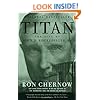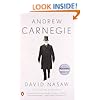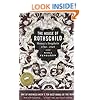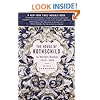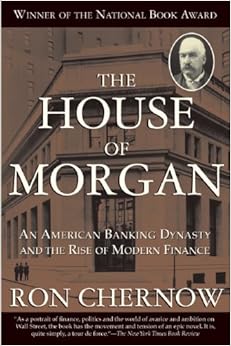
The House of Morgan
and over one million other books are available for Amazon Kindle. Learn more


Flip to back
Flip to front

The House of Morgan: An American Banking Dynasty and the Rise of Modern Finance Paperback – January 13, 2010

$13.41
FREE Shipping on orders over $35.
In Stock.
Ships from and sold by Amazon.com.
Gift-wrap available.
NO_CONTENT_IN_FEATURE
Start reading The House of Morgan on your Kindle in under a minute.
Don't have a Kindle? Get your Kindle here, or download a FREE Kindle Reading App.
Don't have a Kindle? Get your Kindle here, or download a FREE Kindle Reading App.
Best Books of the Month
Want to know our Editors' picks for the best books of the month? Browse Best Books of the Month, featuring our favorite new books in more than a dozen categories.
Want to know our Editors' picks for the best books of the month? Browse Best Books of the Month, featuring our favorite new books in more than a dozen categories.
Product Details
Would you like to update product info or give feedback on images?.
|
Editorial Reviews
From Publishers Weekly
J. P. Morgan Sr.'s close relationship with Teddy Roosevelt; his son Jack Morgan's clientele of governments, finance ministers and central banks; and the Morgan realm's split under New Deal legislation are examined in detail in this National Book Award winner. "Packed with revelations, Chernow's mammoth history demystifies the inner workings of the secretive Morgan banking empire," PW said . Photos . Author tour.
Copyright 1991 Reed Business Information, Inc. --This text refers to an out of print or unavailable edition of this title.
Copyright 1991 Reed Business Information, Inc. --This text refers to an out of print or unavailable edition of this title.
From Library Journal
Chernow vividly portrays the influence that the Morgan banks have had on the history of the Western economy since the late 18th century. The epic story of the development of the American industrial experience is inextricably related to the history of the Morgan banks. Though this fascinating story is virtually the same as that told by Kathleen Bunk in Morgan Grenfell 1838-1988 ( LJ 12/89), Chernow adds color and personality with an emphasis on the 20th-century development of the bank. Working with recently discovered Morgan archives, he reveals institutional details long hidden by the protective secrecy of the family. This superb history will be an important book. BOMC, Fortune, and History Book Club featured alternates. --Joseph Barth, U.S. Military Acad. Lib., West Point, N.Y.
Copyright 1990 Reed Business Information, Inc. --This text refers to an out of print or unavailable edition of this title.
Copyright 1990 Reed Business Information, Inc. --This text refers to an out of print or unavailable edition of this title.
More About the Author
Ron Chernow won the National Book Award in 1990 for his first book, The House of Morgan, and his second book, The Warburgs, won the Eccles Prize as the Best Business Book of 1993. His biography of John D. Rockefeller, Sr., Titan, was a national bestseller and a National Book Critics Circle Award finalist.
Customer Reviews
Most Helpful Customer Reviews
137 of 139 people found the following review helpful
By
A Customer
on January 24, 2000
Format: Paperback
Comment
Sending feedback...
Ron Chernow's "The House of Morgan" is both an engaging history of the Morgan banks and a brilliant account of the growth of global finance from Victorian times through the late 1980's. It's every bit as enjoyable as Chernow's "The Warburgs," but provides a better analysis than the Warburg book of key business and political developments of the 20th century.
No one should be intimidated by this book's length or the complexity of its subject. Its pages are rich with lively portraits of the sometimes quirky men who ran the Morgan banks, the high and mighty of the world with whom they did business, and the world's many critics of such concentrated economic might. Pierpont and Jack Morgan and their successors at the top get the most detailed treatment, but figures as diverse as Brandeis, Mussolini, Lindbergh (the son-in-law of a top Morgan partner), Bryan, Theodore Roosevelt and Margaret Thatcher all play a part in the story, not to mention interesting but lesser-known figures like Ferdinand Pecora, Judge Harold Medina and central bankers from Britain, Germany, Italy and Japan.
As a backdrop to the Morgan saga, this book includes accounts of the main events of 20th-century financial history, such as the Panic of 1907, the creation of the Federal Reserve system, the Crash of 1929 and the depression and bank failures that followed it, the New Dealers' attack on banks led by Pecora that resulted in the Glass-Steagall Act and the separation of commercial banking from investment banking, and the rise of hostile takeovers, Eurodollars, petrodollars, Latin American lending, junk bonds and the securitization of debt, all refreshingly written for laymen rather than experts.
"The House of Morgan" has perhaps two overriding themes.Read more ›
No one should be intimidated by this book's length or the complexity of its subject. Its pages are rich with lively portraits of the sometimes quirky men who ran the Morgan banks, the high and mighty of the world with whom they did business, and the world's many critics of such concentrated economic might. Pierpont and Jack Morgan and their successors at the top get the most detailed treatment, but figures as diverse as Brandeis, Mussolini, Lindbergh (the son-in-law of a top Morgan partner), Bryan, Theodore Roosevelt and Margaret Thatcher all play a part in the story, not to mention interesting but lesser-known figures like Ferdinand Pecora, Judge Harold Medina and central bankers from Britain, Germany, Italy and Japan.
As a backdrop to the Morgan saga, this book includes accounts of the main events of 20th-century financial history, such as the Panic of 1907, the creation of the Federal Reserve system, the Crash of 1929 and the depression and bank failures that followed it, the New Dealers' attack on banks led by Pecora that resulted in the Glass-Steagall Act and the separation of commercial banking from investment banking, and the rise of hostile takeovers, Eurodollars, petrodollars, Latin American lending, junk bonds and the securitization of debt, all refreshingly written for laymen rather than experts.
"The House of Morgan" has perhaps two overriding themes.Read more ›
Thank you for your feedback.
If this review is inappropriate, please let us know.
Sorry, we failed to record your vote. Please try again
88 of 94 people found the following review helpful
By
Sheryl Katz
VINE VOICE on June 14, 2005
Format: Paperback
Verified Purchase
2 Comments
Sending feedback...
Ron Chernow is truly awe-inspiring. This is one of several, incredibly complete biographies that he has written.
At 700 plus pages this is an incredibly long book. Unfortunately it is an uneven read. I became progressively less interested in the book as I went along; however, it was worth the effort to complete.
The first section, which he calls the Baronial Era in banking, is fascinating, and for me it was a page-turner. The Morgan banking house actually began as the George Peabody bank in England, and Junius Morgan was brought over from the US to be his successor. Junius Morgan took the bank to a level far beyond where Peabody had, and then his son JP Morgan Sr. took over. JP Morgan Sr (Pierpont) is the name most associated with Morgan banking, and he was an enormously powerful and colorful character. This was the infamous age of the "Robber Barons" the rise of American railroads, big steel, and the oil industry. Pierpont was at the center of it, commanding industry while collecting art, building yachts and cavorting with women. It makes a great story.
Pierpont was succeeded by his son JP Morgan Jr(Jack) who headed the bank during what Chernow called the "Diplomatic Era". The book became less interesting. Jack was nowhere near as colorful as his father, and his reign over the bank nowhere near as autocratic. Several other bankers, among them Dwight Morrow (father of Anne Morrow Lindbergh) were major players at the bank. The bank played a huge role on the international stage in this era, and while it had strong ties to England (and its sister bank Morgan Grenfall) it also helped finance the rise of the Nazis, Mussolini and the nationalists in Japan. This was also the period of the roaring twenties and the depression.Read more ›
At 700 plus pages this is an incredibly long book. Unfortunately it is an uneven read. I became progressively less interested in the book as I went along; however, it was worth the effort to complete.
The first section, which he calls the Baronial Era in banking, is fascinating, and for me it was a page-turner. The Morgan banking house actually began as the George Peabody bank in England, and Junius Morgan was brought over from the US to be his successor. Junius Morgan took the bank to a level far beyond where Peabody had, and then his son JP Morgan Sr. took over. JP Morgan Sr (Pierpont) is the name most associated with Morgan banking, and he was an enormously powerful and colorful character. This was the infamous age of the "Robber Barons" the rise of American railroads, big steel, and the oil industry. Pierpont was at the center of it, commanding industry while collecting art, building yachts and cavorting with women. It makes a great story.
Pierpont was succeeded by his son JP Morgan Jr(Jack) who headed the bank during what Chernow called the "Diplomatic Era". The book became less interesting. Jack was nowhere near as colorful as his father, and his reign over the bank nowhere near as autocratic. Several other bankers, among them Dwight Morrow (father of Anne Morrow Lindbergh) were major players at the bank. The bank played a huge role on the international stage in this era, and while it had strong ties to England (and its sister bank Morgan Grenfall) it also helped finance the rise of the Nazis, Mussolini and the nationalists in Japan. This was also the period of the roaring twenties and the depression.Read more ›
Thank you for your feedback.
If this review is inappropriate, please let us know.
Sorry, we failed to record your vote. Please try again
129 of 147 people found the following review helpful
By
Randall Whitcomb
on March 25, 2002
Format: Paperback
8 Comments
Sending feedback...
This book is enormous, and based on the gushing of some of the other reviewers, one wonders if they rate on quantity rather than quality. While it is a huge tome, and it should be considering the enormity of the subject, I repeatedly felt myself looking for more detail.
Chernow has a habit of putting a few details in, then glossing over the key points, and editorializing on his own to make the vignette correspond to his thesis. His thesis seems to be this: Morgan (whichever one) was a good man in a dirty business and his monopolistic tendancies were for the moral betterment of humanity. The broader thesis is that the banking titans have been cut down to size for the betterment of the average citizen.
Unfortunately I find much of this posturing nothing more than cheerleading for the rich establishment types that Chernow obviously reveres! He neglects to even mention Morgan's involvement with Nikola Tesla at Wardencliffe, yanking out Tesla's funding when it became clear to him that Tesla was working to provide free energy, not the kind that Morgan could monopolize. He leaves out much more as well, such as Morgan's rather shady involvement in Japan at the end of WW II with Herbert Hoover where they managed to gain preferential treatment in the re-emerging Japanese economy... in alliance with Japanese monopolists eager to preserve their power and control.
It is incredible how Chernow couches Morgan's ruthless monopolist tendancies in terms that make them sound like he was a benign visionary! His attack on the Glass-Steagall act is also certain to make him a darling of the bankers. I wish he had just presented the facts, and replaced his "apologies" with MORE facts!
At any rate, I learned from it, but I recommend viewing much of it with a very jaded eye.
Chernow has a habit of putting a few details in, then glossing over the key points, and editorializing on his own to make the vignette correspond to his thesis. His thesis seems to be this: Morgan (whichever one) was a good man in a dirty business and his monopolistic tendancies were for the moral betterment of humanity. The broader thesis is that the banking titans have been cut down to size for the betterment of the average citizen.
Unfortunately I find much of this posturing nothing more than cheerleading for the rich establishment types that Chernow obviously reveres! He neglects to even mention Morgan's involvement with Nikola Tesla at Wardencliffe, yanking out Tesla's funding when it became clear to him that Tesla was working to provide free energy, not the kind that Morgan could monopolize. He leaves out much more as well, such as Morgan's rather shady involvement in Japan at the end of WW II with Herbert Hoover where they managed to gain preferential treatment in the re-emerging Japanese economy... in alliance with Japanese monopolists eager to preserve their power and control.
It is incredible how Chernow couches Morgan's ruthless monopolist tendancies in terms that make them sound like he was a benign visionary! His attack on the Glass-Steagall act is also certain to make him a darling of the bankers. I wish he had just presented the facts, and replaced his "apologies" with MORE facts!
At any rate, I learned from it, but I recommend viewing much of it with a very jaded eye.
Thank you for your feedback.
If this review is inappropriate, please let us know.
Sorry, we failed to record your vote. Please try again
